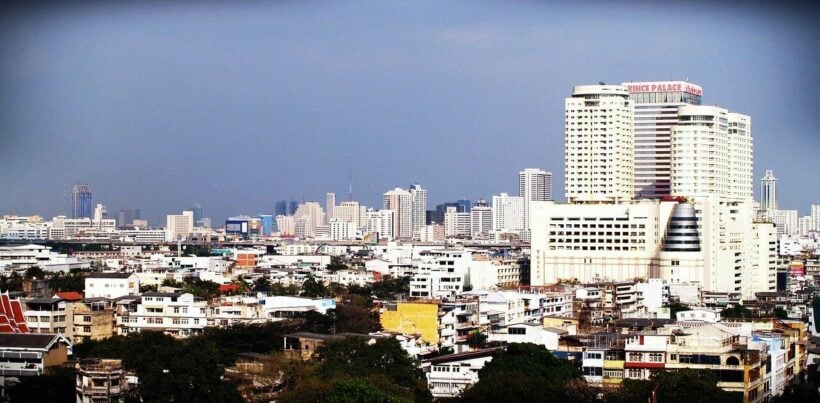Bangkok condo market making a comeback amidst the future of Asian megacities

A major property developer says Bangkok condos are making a comeback after 2 years of limited launches due to the Covid-19 pandemic. Supalai says December is the magic month for a comeback and has announced it is launching up to 4 new condo projects in Bangkok, worth an estimated 5.74 billion baht. Supalai Managing Director Tritecha Tangmatitham told the Bangkok Post that last year saw a 50 percent shrinkage in the condo market, with this year expected to continue its downward decline.
“But we see a large amount of new condo supply planned to launch in the 4th quarter. As a result, the total number of new condo supply launched this year will be the same amount as last year.”
Despite Supalai refraining from launching a Bangkok condo project since September of 2020, it has found strategic locations for upcoming developments. And, as Covid has changed the face of the property market, Supalai says one location that may support sales, is that of the 248-unit Supalai Premier Samsen-Ratchawat. The condo’s location is in an area where there is demand for housing from medical staff. The move is part of a robust 4th quarter plan from the developer which will see the company launch 22 new projects – most consisting of low-rise housing.
According to Supalai, residences in the 3-5 million baht range have recorded the strongest demand this year since mid-range customers and government employees have stable incomes. The developer says most of the launches this year have fallen into that price range. But, it isn’t just Supalai that is resuming condo launches. Colliers International Thailand conducted research that found a total of 5,393 units hit the market in the 3rd quarter of 2021, almost doubling the amount of launches seen in the 2nd quarter. Associate Director of the Research and Communications, Phattarachai Taweewong of Colliers International Thailand, told the Bangkok Post about the expected number of new condo units to be launched.
“So far, there will be 6,913 new condo units being launched in the 4th quarter. But we expect the actual amount will exceed 8,000 units.”
The comeback of the Bangkok condo market is just one of the many things that will be changing in the future, as real estate big wigs are predicting that South East Asian countries’ will see 25% of their populations making the move to megacities. PropertyGuru Group CEO and Managing Director, Hari V. Krishnan, says by 2025, he expects the megacities to see 350 million people taking advantage of the facilities that such massive cities offer.
But, it won’t come without major setbacks. As already, Krishnan says 3 Asian megacities are suffering from the rise of urbanisation that will only worsen. Bangkok, Penang, and Jakarta see widespread flooding, while Singapore and Malaysia suffer from smog. Now, Jakarta residents are fighting back by suing their government over poor air quality.
Krishnan says better planning is paramount in helping reduce the negative affects on cities and communities. He says looking at more developed countries’ cities provide inspiration for building a better future as children in poor communities are less likely to be successful. One example of successful planning is that of Tel Aviv, which has seen an electric road being built to power buses, and a Whim app in Helsinki to help citizens access different transport means to help plan out their travels. Such an app has led to the UK, Singapore, and Tokyo to follow suit by developing their own transport apps to help their residents.
The mindset of looking towards the future is catching on as Krishnan states that property seekers are already thinking of their homes for the future. Now, he says, we must improve our future homes, whether that means increasing the amount of gardening space for sustainable living or adopting such digital apps to manage utilities. Asian developers are, indeed, taking note of these demands and are diving into the digital age with both feet. Krishnan says more efficient cooling and solar panels are increasingly in demand as well as pre-fabriated buildings. Modular buildings along with such pre-fab buildings help reduce pollution and improve air quality when being built. Time and money must be invested, however, to improve public policies and private investment to help drive such sustainable building practises.
He also says sustainable and responsibly built structures reflect the community around them. As climate change is here, he notes that small steps should be taken to eradicate single-use plastics, while introducing efficiency-driven appliances to help tackle global warming. As the technology is already here to offer sustainable solutions, Krishnan says each country’s government must play a bigger role in supporting sustainability to help our future generations. And, that sort of change needs to happen today.
SOURCE: Thailand Property/DD Property
Latest Thailand News
Follow The Thaiger on Google News:


























